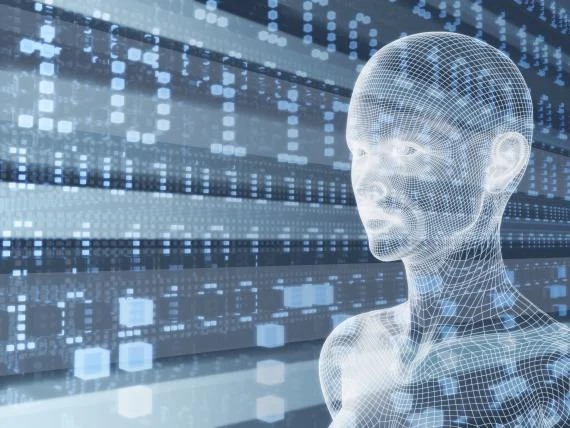

Artificial intelligence (AI) can be defined as a branch of computer science concerned with creating more ‘intelligent’ machines.

AI technologies have been developed to work in a more human-like way including:
- Learning
- Problem-solving
- Planning
Machine learning is an important area of AI, which involves training computers to learn tasks based on repeatedly working through examples. This allows computers to spot patterns in large amounts of data, without supervision.
AI has advanced rapidly over recent years, most notably as personal assistants in electronic devices such as mobile phones and smart speakers.
AI is increasingly being used for a range of activities including: driving, clinical diagnosis, translation, providing advice, legal casework, warehousing, loan approval, improving productivity and the efficiency of logistics operations. Advances in AI are developing rapidly and systems are growing more powerful and capable of carrying out a wider range of tasks.
- There is evidence that work is being increasingly coordinated and overseen by computer algorithms, so workers may experience or perceive a loss of control over the pace, scheduling and way they do their work. These systems could prioritise productivity without adequately considering the impact on human workers. This may result in work intensification; which is linked to work-related stress, poor health and well-being, lower productivity and increased sickness absence. Increasingly, worker productivity data can also be used to reward, or penalise and exclude workers.
- AI has the potential to help address important workplace health challenges, such as the analysis and interpretation of health data. This may enable improved learning and a greater understanding of occupational ill health and worker behaviour.
- AI could be used to analyse large volumes of past data, for example occupational health surveillance data, and potentially identify new insights into workplace ill health. This could flag up potential health problems at work before they become an issue. AI-generated workplace health guidance and advice could be delivered through smart devices such as a ‘chat-bot’ or personal protection systems.
- New insights produced by AI may be limited by the quality of available workplace health data. Inherent biases may also be present in the data used to train algorithms or in the structuring of the algorithms. There is, therefore, the potential for algorithms to draw erroneous conclusions from pattern analysis.
- The use of AI raises a number of ethical issues. Potentially sensitive health data needs to be protected. Consideration needs to be made of who is responsible when AI is used to support decision-making. For example, when AI is continually learning and modifying its own behaviour, it can be difficult to verify how the machine arrives at the decisions.
- A lack of understanding of how AI works and how it arrives at decisions could be a source of concern for workers and have an adverse impact on their mental health.
HSE’s Foresight Centre chose the topics on the visible and emerging issues we observe through our routine horizon scanning activities. If you are interested in looking into the future of work and using collaborative futures techniques, such as workshops and scenario building, you can contact HSE’s Foresight Centre by emailing foresight.centre@hse.gov.uk.
Related Content
